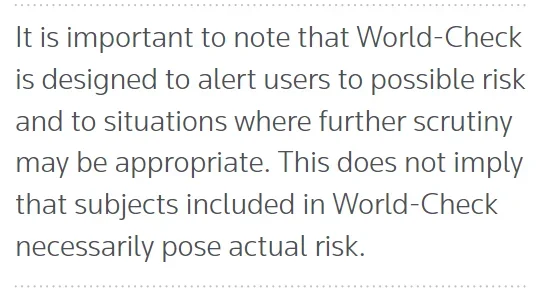https://www.newyorker.com/magazine/2023/04/03/the-dirty-secrets-of-a-smear-campaign
> Nada was the founder of a nine-year-old commodities-trading business, Lord Energy. The “Lord” stood for “liquid or dry,” because the company shipped both crude oil and such drygoods as cement and corn. He had carved out a lucrative niche by establishing unconventional routes: Libya to Korea, Gabon to Italy. By the summer of 2017, Lord Energy, which was based in Lugano, a Swiss city across the border from Como, had a satellite office in Singapore, another opening in Houston, and annual revenue approaching two billion dollars.
> In the fall of 2017, there was another deceptive call. A man pretending to represent Citibank contacted Nada’s company and requested banking information about Lord Energy, claiming that he wanted to process a payment. Then, that December, the company unexpectedly appeared in a gossipy online publication called Africa Intelligence. The item was ostensibly about a delay in a Lord Energy tanker’s departure from Algeria. Nada had kept the tanker anchored for minor repairs, but Africa Intelligence said that Algerian authorities had blocked it. Odder still, the article insinuated that the delay was linked to the implosion of his father’s bank, after the terrorist attacks of September 11, 2001.
> Six months after the first Africa Intelligence item, World-Check, a database that banks rely on to vet customers, listed both Hazim and Lord Energy under the risk category “Terrorism.” Five financial institutions walked away from negotiations with Nada. UBS cancelled his personal checking account—and his mother’s, too.
> Nine days later, World-Check deleted the listing. “An error was made,” a lawyer for the company wrote to Nada, offering a “letter of apology” that he could show to lenders. But the damage had been done. In December, 2018, his longtime bankers at Credit Suisse stopped doing business with Lord Energy.
> Panic attacks kept coming for months. “I had creditors running after me from all across the world—the U.S., South Korea, Gabon, you name it,” he said. “It was horrible.” That April, Lord Energy ceased operations and sought bankruptcy protection.
> Nada was the founder of a nine-year-old commodities-trading business, Lord Energy. The “Lord” stood for “liquid or dry,” because the company shipped both crude oil and such drygoods as cement and corn. He had carved out a lucrative niche by establishing unconventional routes: Libya to Korea, Gabon to Italy. By the summer of 2017, Lord Energy, which was based in Lugano, a Swiss city across the border from Como, had a satellite office in Singapore, another opening in Houston, and annual revenue approaching two billion dollars.
> In the fall of 2017, there was another deceptive call. A man pretending to represent Citibank contacted Nada’s company and requested banking information about Lord Energy, claiming that he wanted to process a payment. Then, that December, the company unexpectedly appeared in a gossipy online publication called Africa Intelligence. The item was ostensibly about a delay in a Lord Energy tanker’s departure from Algeria. Nada had kept the tanker anchored for minor repairs, but Africa Intelligence said that Algerian authorities had blocked it. Odder still, the article insinuated that the delay was linked to the implosion of his father’s bank, after the terrorist attacks of September 11, 2001.
> Six months after the first Africa Intelligence item, World-Check, a database that banks rely on to vet customers, listed both Hazim and Lord Energy under the risk category “Terrorism.” Five financial institutions walked away from negotiations with Nada. UBS cancelled his personal checking account—and his mother’s, too.
> Nine days later, World-Check deleted the listing. “An error was made,” a lawyer for the company wrote to Nada, offering a “letter of apology” that he could show to lenders. But the damage had been done. In December, 2018, his longtime bankers at Credit Suisse stopped doing business with Lord Energy.
> Panic attacks kept coming for months. “I had creditors running after me from all across the world—the U.S., South Korea, Gabon, you name it,” he said. “It was horrible.” That April, Lord Energy ceased operations and sought bankruptcy protection.





